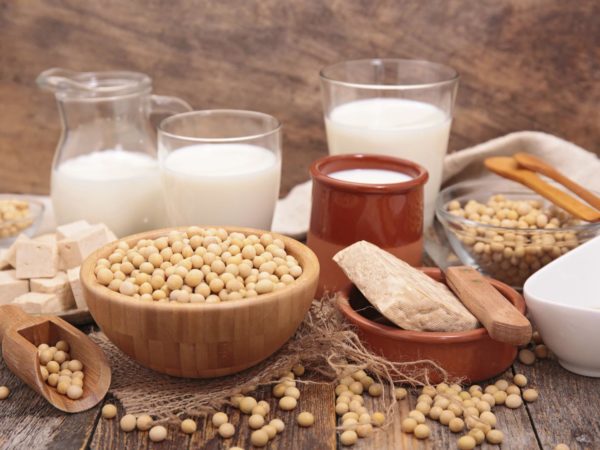Which Vegetable Protein Is Best?
I’m interested in adding vegetable sources of protein to my diet. Can you explain the differences between soy, whey and hemp protein and tell me which one is most beneficial?
Andrew Weil, M.D. | September 17, 2013

Whole soy foods, including tempeh and tofu, are excellent sources of protein that are nutritionally equivalent to the protein you would get from meat, chicken, fish or eggs. Soy foods also contain healthy fat and isoflavones, unusual compounds that may offer significant protection against cancer (particularly hormonally driven malignancies such as breast and prostate cancers). My favorite ways to consume soy include snacking on edamame (green soybeans), adding tofu to stir-fries, and using smoked tempeh strips as an alternative to bacon. Substituting soy protein for animal protein is a healthy change I would like to see more people make, although you should use only whole soy-based products, and avoid soy isolates.
Whey is one of two dairy proteins. (The other, casein can irritate the immune system and stimulate mucus production, worsening allergy symptoms.) Whey protein constitutes about 20 percent of total milk protein and is separated out from casein and used to make ice cream, bread, infant formula and milk replacement products (everything from powders to various drinks and protein bars). If you are lactose intolerant – that is, you develop digestive symptoms after eating dairy products – you may or may not have problems with foods containing whey protein, depending on the amount of lactose they contain. If you’re allergic to milk protein, it is important to know whether the troublemaker is casein or whey before using whey protein products.
Hemp milk contains 10 essential amino acids, making it a good vegetarian source of protein (although probably not as good as soy protein). An advantage, according to the manufacturer of one brand of hemp milk, it does not contain phytates, enzyme inhibitors found in some soy protein products that can interfere with the assimilation of essential minerals. The same manufacturer maintains that hemp protein is more digestible than soy protein because unlike soy, it contains no oligosaccharides, complex sugars that can cause flatulence if not properly broken down during digestion. Hemp seeds have a rich, nutty flavor, something like that of sunflower seeds. I like them toasted with a bit of salt or garlic. Hemp milk is made by pulverizing the seeds, blending them with water and straining out the solid residue. The resulting liquid provides both omega-6 and omega-3 essential fatty acids in a healthy three-to-one ratio. However, like other vegetarian sources, the omega-3 in hemp is alpha-linolenic acid, not the more desirable forms (EPA and DHA) found in oily fish. Hemp also contains magnesium, phytosterols, ascorbic acid, beta-carotene, calcium, fiber, iron, potassium, phosphorus, riboflavin, niacin and thiamin. Hemp seeds are not as allergenic as tree nuts, and those allergic to soy or dairy should be able to safely consume hemp milk.
Another complete source of protein containing all nine essential amino acids is quinoa (pronounced KEEN-wah), which is considered to have the highest protein content of any grain. In reality, quinoa is not a true grain, because it is not in the grass family. The plant is a relative of beets, spinach and Swiss chard, but we treat its seeds as we would a grain, and they cook faster than rice. Quinoa is gluten-free and easy to digest.
Andrew Weil, M.D.









